Who’s Afraid of Virginia Woolf?
Comprehensive Storyform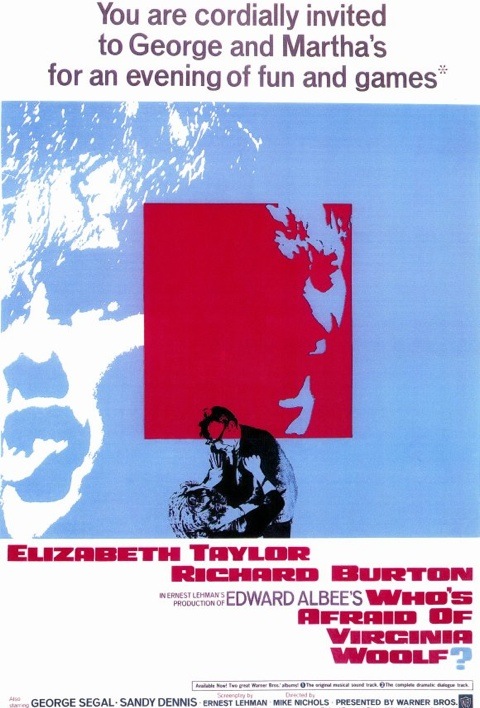
The following analysis reveals a comprehensive look at the Storyform for Who’s Afraid of Virginia Woolf?. Unlike most of the analysis found here—which simply lists the unique individual story appreciations—this in-depth study details the actual encoding for each structural item. This also means it has been incorporated into the Dramatica Story Expert application itself as an easily referenced contextual example.
Story Dynamics
8 of the 12 essential questions
- Steadfast
- Main Character Resolve
Rather than stopping the “game” by exposing the lie about their “son,” George continues to play within the rules and “kills” their son—GEORGE: “I have the right, Martha. We never spoke of it; that’s all. I could kill him any time I wanted to.”
- Start
- Main Character Growth
Martha has strayed far too far into the land of perception. Even though Martha says, “Truth and illusion, George; you don’t know the difference,” it is actually Martha who cannot tell the difference anymore and George must hold out for Martha to start being able to recognize the difference.
- Do-er
- Main Character Approach
Rather than trying to “cope” with the impact of the mind games by adjusting himself to those around him, George externalizes his problem solving by actively manipulating or “psyching-out” those around him.
- Male
- Main Character Mental Sex
George formulates a plan to end one particular game (the fantasy of their son) and takes steps to bring it to fruition.
- Decision
- Story Driver
The decision to have the guests over drives the initial actions of the story; Martha’s decision to tell Honey about their “son” forces George to change tactics and begin to intentionally play games with them (formally it was only between he and Martha); Martha’s decision to ignore George’s warning and tell them about his being a “big . . . fat . . . FLOP!” drives George to smash the bourbon bottle; George’s decision to ignore Martha’s passes at Nick and to read a book drives Martha to follow through with her threats and go to bed with Nick; etc.
- Optionlock
- Story Limit
There is not any time limit to the games that George and Martha are playing with (and without) their guests. However, there are rules that limit the “playing field.” Once those rules have been sufficiently exceeded, events will change from being a game to becoming real.
- Failure
- Story Outcome
The fantasy of George and Martha’s “son” is exposed. This is not because their son has “died”—his death could easily perpetuate the myth. It’s the fact that Nick (and ostensibly Honey) come to understand that there never was or could be a child of George and Martha’s. “NICK (To George; quietly): You couldn’t have . . . any? GEORGE: We couldn’t. MARTHA (A hint of communion in this): We couldn’t.”
- Good
- Story Judgment
George’s resolve to continue playing within the rules causes the collapse of the “family fantasy” game. However, this is shown to be a potentially good event because it has destroyed the game that was keeping George and Martha apart. It is implied that the downward spiral of their life together may have changed direction: “GEORGE: It will be better. MARTHA (Long silence): I don’t . . . know. GEORGE: It will be . . . maybe.”
Overall Story Throughline
""Party Games""
- Psychology
- Overall Story Throughline
The story explores the characters’ efforts to manipulate, coerce, and/or “psych-out” each other. During the course of the evening, they play several “games,” such as “Humiliate the Host,” “Get the Guests,” “Hump the Hostess,” and “Bringing up Baby.”
- Conceptualizing
- Overall Story Concern
Everyone is concerned with trying to figure out how their lives will be impacted by the arrival of Nick and Honey at New Carthage, and how to make the best of it. Nick is trying to determine how best to insinuate himself into the college hierarchy (“Take over a few courses from the older men, start some special groups for myself . . . plow a few pertinent wives . . .”); George is concerned with figuring out a way to minimize or prevent Nick from making a marginal situation worse for him (to Nick—“You realize, of course, that I’ve been drawing you out on this stuff . . . because you represent a direct and pertinent threat to my lifehood, and I want to get the goods on you.”); Martha is trying to figure out how to push George too far (“Some day . . . hah! Some night . . . some stupid, liquor-ridden night . . . I will go too far . . . and I’ll either break [George]‘s back . . . or push him off for good . . . which is what I deserve.”); Honey is trying to work out a plan to continue her marriage without children.
- Situation
- Overall Story Issue
Nick’s situation as a good looking, popular “stud” married to Honey, a plain, overly sensitive woman is played against the circumstances surrounding their marriage (false pregnancy) and the true source of their livelihood (her dead father’s money). Martha’s situation of being the college president’s daughter is continually contrasted with George’s poor performance as heir apparent to the school presidency: “There are easier things in the world, if you happen to be teaching at a university, there are easier things than being married to the daughter of the president of that university. There are easier things in this world.”
- Circumstances
- Overall Story Counterpoint
- Overall Story Thematic Conflict
Situation vs.Circumstances - Order
- Overall Story Problem
Rules and organization are at the heart of the problems in this story. The rigid socio-political structures in place at the college create great stress for George (”. . . when you’ve had as many of these faculty parties as I have . . .”) including the specific organization of the history department; rules of behavior and etiquette prevent everyone from responding naturally to the inexcusable behavior exhibited by Martha (and everyone else for that matter); the rules of the various “games” that are played prohibit natural responses and force suppression of anger; the order that the “family unit” supposedly provides is a source of great conflict for all the characters involved.
- Chaos
- Overall Story Solution
If the objective characters were not so caught up in following the rigid social and political order that is in place, they might have been able to respond to problematic issues freely, thus avoiding the painful consequences that come to bear.
- Perception
- Overall Story Symptom
Because Martha is the daughter of the president, it would seem that George would have a cushy time at college; because George takes Martha’s abuse, it would seem that he has no backbone; because Martha constantly pursues younger men, it would seem that she is discontented with George; because Nick is young and still in good shape, it would seem that he is a virile stud; because Honey is frail and “slim-hipped,” it would seem that she may not be able to have children; and, lest we forget, because “Daddy” is such a swell and lovable person, it seems that everyone should do what he dictates and/or kiss up to him; etc.
- Actuality
- Overall Story Response
George tries to tactfully let Nick in on the downsides of having the president of the college as a father-in-law; Martha puts her efforts toward discovering how much of a stud Nick really is; George tries to “get the goods” on Nick; Nick tries to determine how valuable in terms of status it would be to “plow” Martha; Honey tries to silence the ghosts that haunt her dreams by revealing her fear of having children; Martha (and then George) directs her efforts to create the “reality” of their son, Jim; etc.
- Circumstances
- Overall Story Catalyst
- Falsehood
- Overall Story Inhibitor
- Conceiving
- Overall Story Benchmark
Identifying and clarifying the different games in the story indicates how the objective story is progressing. First it is “Humiliate the Host,” then it is “Get the Guests,” then it is “Hump the Hostess,” and finally it is “Bringing up Baby.”
- Overall Story Throughline Synopsis
A dysfunctional couple, George and Martha, invite a status-climbing new teacher Nick and his simpering wife Honey over to their house for a late night bout of “mind games.”
Additional Overall Story Information →
Main Character Throughline
George — Husband
- Universe
- Main Character Throughline
George is defined by his physicality and his “status” which causes troubles for him. According to Martha, “George is bogged down in the History Department. He’s an old bog in the History Department, that’s what George is. A bog. . . . A fen. . . . A G.D. swamp. Ha, ha, ha, HA! A SWAMP! Hey, swamp! Hey SWAMPY!” Later Martha says, “George, here, doesn’t cotton much to body talk . . . do you sweetheart? (No reply) George isn’t too happy when we get to muscle. You know . . . flat bellies, pectorals . . .” and refers to him as “Paunchy.” This is particularly important because Martha is constantly going after young, physically fit “studs” which contrasts George’s physically poor condition.
- Past
- Main Character Concern
As George puts it, “I am preoccupied with history.” Not only is George a history professor, but his own past is of chief concern to him—the accidental shooting death of his mother, the death of his father in the car crash that George was responsible for, etc.
- Prediction
- Main Character Issue
The struggle between prediction and interdiction illustrate George’s values throughout the story. From the very beginning George tries to prevent what he knows is going to happen by telling Martha to “leave the kid out of this.” His interest in history seems to be with the intent of predicting the future with an eye toward preventing repetition of past mistakes. George predicts a future where, based on genetic engineering, there will be “a race of glorious men,” but also “we will not have much music, much painting, but we will have a civilization of men, smooth, blond, and right at the middleweight limit . . . Cultures and races will eventually vanish . . . the ants will take over the world.” George continues, “And I, naturally, am rather opposed to all this. History . . . will lose its glorious variety and unpredictability. I, and with me the . . . the surprise, the multiplexity, the sea-changing rhythm of . . . history, will be eliminated. There will be order and constancy . . . and I am unalterably opposed to it.”
- Interdiction
- Main Character Counterpoint
- Main Character Thematic Conflict
Prediction vs.Interdiction - Inertia
- Main Character Problem
Though George’s career started well enough, it soon lost inertia. This caused Martha’s resentment of him, his father-in-law’s poor treatment of him, and George’s not inconsiderable self-loathing. The same loss of inertia can be seen in his relationship with Martha. What started out well has since petered out and is barely hanging on.
- Change
- Main Character Solution
The solution to George’s troubles is change. A change of scenery and/or career would probably get him out of his “bogged” situation—possibly a move to another university, a change of profession, or just a change of departments. However he might want to do it, changing his situation (and/or physical condition) would have a profound effect on him and resolve his current personal “problems.”
- Perception
- Main Character Symptom
George believes that people’s perception of who he is and his status/situation at the university (married to the president’s daughter) is the cause of his problems. His “games” are thought to be fiction. Even his autobiographical book is taken to be fiction, etc.
- Actuality
- Main Character Response
George had tried to rectify his misunderstood personal history by writing an autobiography. Shortly after Nick and Honey arrive, George lets it be known that “there are easier things in the world” than being married to the president’s daughter. George’s efforts are also directed at “getting the goods” on Nick (who George sees as a direct threat to his situation). Ultimately, because of George’s directed efforts, the actuality behind the “Bringing up Baby” game is exposed.
- Interdiction
- Main Character Unique Ability
George is the only one who can kill their “son.” Martha could, but is quite unwilling. Nick cannot because he doesn’t know what is going on even though he has been included (without his knowledge) into the game. Without being aware of it, Honey has bought into the fantasy completely and will not reveal Jim’s death to Martha.
- Conditioning
- Main Character Critical Flaw
George has become habituated to accommodating Martha’s fantasies and behavior. This makes him desensitized to her rantings and flirtations. “GEORGE (Calmly, matter-of-factly): I’m numbed enough . . . and I don’t mean by liquor, though maybe that’s been part of the process—a gradual, over-the-years going to sleep of the brain cells—I’m numbed enough, now, to be able to take you when we’re alone. I don’t listen to you . . . or when I do listen to you, I sift everything. I bring everything down to reflex response, so I don’t really hear you, which is the only way to manage it.”
- Present
- Main Character Benchmark
George gauges how things are going in his life based on his immediate environment, and as the story progresses he sees it going down the toilet.
- Main Character Description
Martha’s husband, 46. Thin; hair going gray.
Additional Main Character Information →
Influence Character Throughline
Martha — Wife
- Mind
- Influence Character Throughline
Martha lives in a fantasy world. She has a fixation on a son that does not exist, a father that doesn’t love her, and a husband whose unconditional love she rejects.
- Memory
- Influence Character Concern
Martha sees the best part of her life as being over with so she fixates on those “memories” that she has. Martha starts off with a Bette Davis quote, the source of which she cannot remember and which also acts as the source of her first conflict with George. Her memories of actual events (her first marriage to the mower man, her courtship of George, George’s failure as the chairperson of the History department, etc.) are used as weapons to humiliate George. Her memories of imaginary events (bringing up their “son,” Jim) are used to connect emotionally with other people (Nick and Honey) as well as further denigrate George.
- Evidence
- Influence Character Issue
The by-play between evidence and suspicion is first evident when George begins publicly playing the “son” game. The more (usually conflicting) evidence of their son’s “existence,” the greater the suspicion that something not-quite-right is going on. Even Martha becomes suspicious when George starts the “Bringing up Baby” game—not sure what George is up to. Eventually, our suspicions are confirmed as the evidence overwhelmingly points to Martha’s questionable mental state, and the non-existence of Jim.
- Suspicion
- Influence Character Counterpoint
- Influence Character Thematic Conflict
Evidence vs.Suspicion - Order
- Influence Character Problem
- Chaos
- Influence Character Solution
- Change
- Influence Character Symptom
Martha is constantly changing the rules of their “games.” Martha says George is the one “who keeps learning the games we play as quickly as I [Martha] can change the rules . . .” This is most clearly seen from the beginning when Martha breaks the rules and mentions their son to outsiders (Honey).
- Inertia
- Influence Character Response
It is clear from George and Martha’s conversation at the very beginning of the story that it is almost expected that Martha pursues good-looking, young men. George says to Martha, “There aren’t may more sickening sights than you with a couple of drinks in you and your skirt up over your head” Later, before she seduces Nick, she recounts about George, “I sat there at Daddy’s party, and I watched you . . . I watched you sitting there, and I watched the younger men around you, the men who were going to go somewhere . . . and I sat there and I watched you, and you weren’t there!”
- Suspicion
- Influence Character Unique Ability
- Sense of Self
- Influence Character Critical Flaw
Martha is full of self loathing. This is most apparent when she is talking to Nick about George “. . . whom I will not forgive for having come to rest; for having seen me and having said: yes; this will do; who has made the hideous, the hurting, the insulting mistake of loving me and must be punished for it . . . who tolerates, which is intolerable; who is kind, which is cruel; who understands, which is beyond comprehension . . . Some day . . . I will go too far . . . and I’ll either break the man’s back . . . or push him off for good . . . which is what I deserve.”
- Conscious
- Influence Character Benchmark
- Influence Character Description
A large, boisterous woman, 52, looking somewhat younger. Ample, but not fleshy.
More Influence Character Information →
Relationship Story Throughline
""An Equal Battle, Baby; That's All""
- Physics
- Relationship Story Throughline
The activity that George and Martha are engaged in is a game, which later becomes a “total war.”
- Understanding
- Relationship Story Concern
There are rules to the game, but George and Martha have quite different understandings of how to play. GEORGE: “You broke our rule, baby. You mentioned him . . . you mentioned him to someone else.” MARTHA: “I FORGET! Sometimes . . . sometimes when it’s night, when it’s late, and . . . and everybody else is . . . talking . . . I forget and I . . . want to mention him . . . but I . . . HOLD ON . . . I hold on . . . but I’ve wanted to . . . so often . . . oh, George, you pushed it . . . there was no need . . . there was no need for this. I mentioned him . . . all right . . . but you didn’t have to push it over the EDGE. You didn’t have to . . . kill him.”
- Senses
- Relationship Story Issue
The meaning of Senses versus Interpretation is explored in the relationship of George and Martha. The single largest thematic example of “senses” is illustrated by their frequent consumption of alcohol—a sense deadener. The second largest thematic example is personal appearance. MARTHA: “Look, sweetheart, I can drink you under any goddamn table you want . . . so don’t worry about me!” GEORGE: “Martha, I gave you the prize years ago . . . .There isn’t an abomination award going that you . . .” MARTHA: “I swear . . . if you existed I’d divorce you . . .” GEORGE: “Well, just stay on your feet, that’s all . . . These people are your guests, you know, and . . .” MARTHA: “I can’t even see you . . . I haven’t been able to see you for years . . .” George: “. . . if you pass out, or throw up, or something . . .” MARTHA: “. . . I mean, you’re a blank, a cipher . . .” GEORGE: “. . . and try to keep your clothes on, too. There aren’t many more sickening sights than you with a couple of drinks in you and your skirt up over your head, you know . . .” The issues of conflict over interpretation between George and Martha is clearly seen when they are explaining why their imaginary son stays away during the summers. MARTHA: “. . . A son . . . a son who spends his summers away . . . away from his family . . . ON ANY PRETEXT . . . because he can’t stand the shadow of a man flickering around the edges of a house . . .” GEORGE: “. . . who spends his summers away . . . and he does! . . . who spends his summers away because there isn’t room for him in a house full of empty bottles, lies, strange men, and a harridan who . . .”
- Interpretation
- Relationship Story Counterpoint
- Relationship Story Thematic Conflict
Senses vs.Interpretation - Order
- Relationship Story Problem
The games are so familiar and ordered that they support George and Martha’s vicious behavior toward each other and prevent them from escaping its destructive forces.
- Chaos
- Relationship Story Solution
Their “son” is “killed” in an automobile accident, “. . . on a country road, with his learner’s permit in his pocket, he swerved, to avoid a porcupine, and drove straight into a . . . large tree.” This chaotic event ends the game and moves George and Martha closer together—a first step in a long road to recovery.
- Inequity
- Relationship Story Symptom
George and Martha’s attention is constantly focused on the unequal nature of their relationship. After getting a drink for Martha, George starts to make himself one. GEORGE: “And now one for me. It’s my turn.” MARTHA: “Never, baby . . . it’s never your turn.” GEORGE (Too cheerful): “Oh, now, I wouldn’t say that, Martha.” MARTHA: “You moving on the principle the worm turns? Well, the worm part’s OK . . . cause that fits you fine, but the turning part . . . unh-unh! You’re in a straight line, buddy-boy, and it doesn’t lead anywhere . . . (A vague afterthought) . . . except maybe the grave.” Later by her own admission, Martha’s treatment of George is shown to be grossly unfair. MARTHA: “George who is good to me, and whom I revile; who understands me, and whom I push off; who can make me laugh, and I choke it back in my throat; who can hold me, at night, so that it’s warm, and whom I will bite so there’s blood . . .”
- Equity
- Relationship Story Response
In the final showdown between George and Martha, George wants to make sure Martha is alert so they can have a “fair” fight “to the death.” GEORGE: “Now, you listen to me, Martha; you have had quite an evening . . . quite a night for yourself, and you can’t just cut it off whenever you’ve got enough blood in your mouth. We are going on, and I’m going to have at you, and it’s going to make your performance tonight look like an Easter pageant. Now I want you to get yourself a little alert. (Slaps her lightly with his free hand) I want a little life in you, baby. (Again)” MARTHA (Struggling): “Stop it!” GEORGE: “(Again) Pull yourself together! (Again) I want you on your feet and slugging, sweetheart, because I’m going to knock you around, and I want you up for it. (Again he pulls away, releases her; she rises)” MARTHA: “All right, George. What do you want, George?” GEORGE: “An equal battle, baby; that’s all.”
- Interpretation
- Relationship Story Catalyst
- Destiny
- Relationship Story Inhibitor
- Learning
- Relationship Story Benchmark
The growth of the relationship between George and Martha is measured by how effectively each learns to play the “game” by the rules. As George points out late in the story, “This is a civilized game.”
Additional Relationship Story Information →
Additional Story Points
Key Structural Appreciations
- Conceptualizing
- Overall Story Goal
George, Martha, Nick, and Honey are trying to figure out how to realize a “normal” family life, particularly in the context of New Carthage. Each are coming to the goal from different directions. Martha has a “son” that she would like to share with others and a father whose love she wants; George’s parents are dead, is unable to have children with Martha, and would like nothing better than to normalize his life with Martha without their “son”; Nick wants children to complete his image but his wife appears to be unable to have them; Honey is terrified of the pain associated with childbirth but is desperate to figure out a way (other than children) to keep Nick from straying away from her.
- Understanding
- Overall Story Consequence
Because the “Bringing up Baby” game resulted in failure, the characters come to understand the depth of the deceit. Nick best illustrates this revelation: “NICK (very quietly): I think I understand this. GEORGE: Do you? NICK: Jesus Christ, I think I understand this. GEORGE: Good for you, buster. NICK (Violently): JESUS CHRIST I THINK I UNDERSTAND THIS!”
- Memory
- Overall Story Cost
There are many negative, painful memories that are dredged up and endured during the course of the story. George’s story about the boy who said “Bergin” is exposed by Martha as a humiliating memory. Martha exhumes the painful memories of her first marriage and her expectations for her “next” husband in order to torment George in front of the guests. Nick’s memories of the circumstances surrounding his marriage to Honey are endured while trying to get information from George about climbing the social/political ladder in New Carthage; etc.
- Past
- Overall Story Dividend
- Conceiving
- Overall Story Requirements
- Learning
- Overall Story Prerequisites
- Conscious
- Overall Story Preconditions
- Present
- Overall Story Forewarnings
Plot Progression
Dynamic Act Appreciations
Overall Story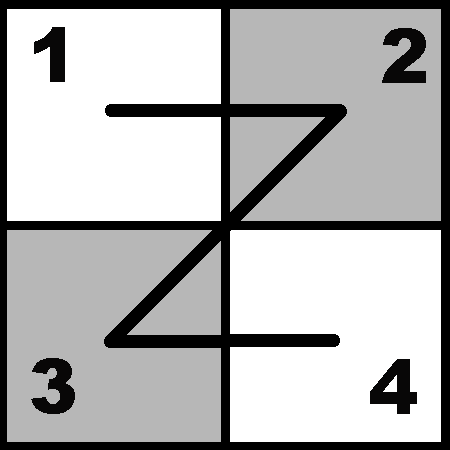
- Conceptualizing
- Overall Story Signpost 1
- Being
- Overall Story Signpost 2
- Becoming
- Overall Story Signpost 3
- Conceiving
- Overall Story Signpost 4
Main Character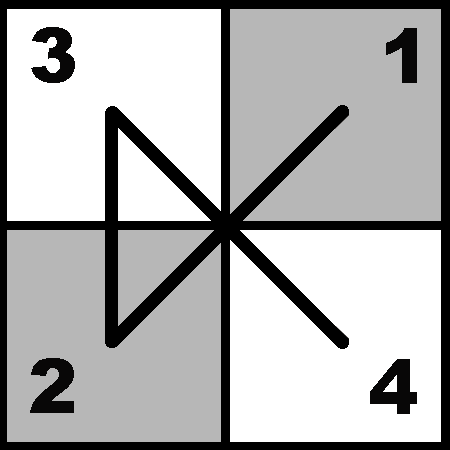
- Progress
- Main Character Signpost 1
- Future
- Main Character Signpost 2
- Past
- Main Character Signpost 3
- Present
- Main Character Signpost 4
Influence Character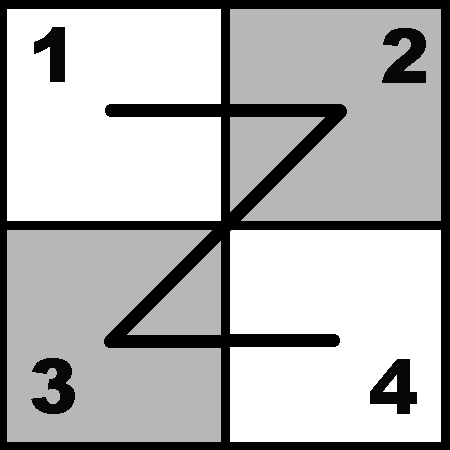
- Memory
- Influence Character Signpost 1
- Preconscious
- Influence Character Signpost 2
- Subconscious
- Influence Character Signpost 3
- Conscious
- Influence Character Signpost 4
Relationship Story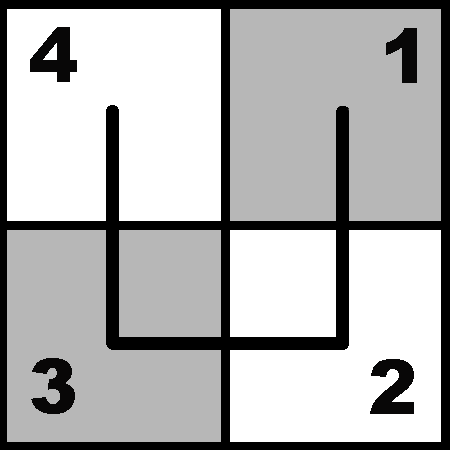
- Doing
- Relationship Story Signpost 1
- Learning
- Relationship Story Signpost 2
- Obtaining
- Relationship Story Signpost 3
- Understanding
- Relationship Story Signpost 4
Plot Progression Visualizations
Dynamic Act Schematics
OS:  MC:
MC:  IC:
IC:  RS:
RS: 




